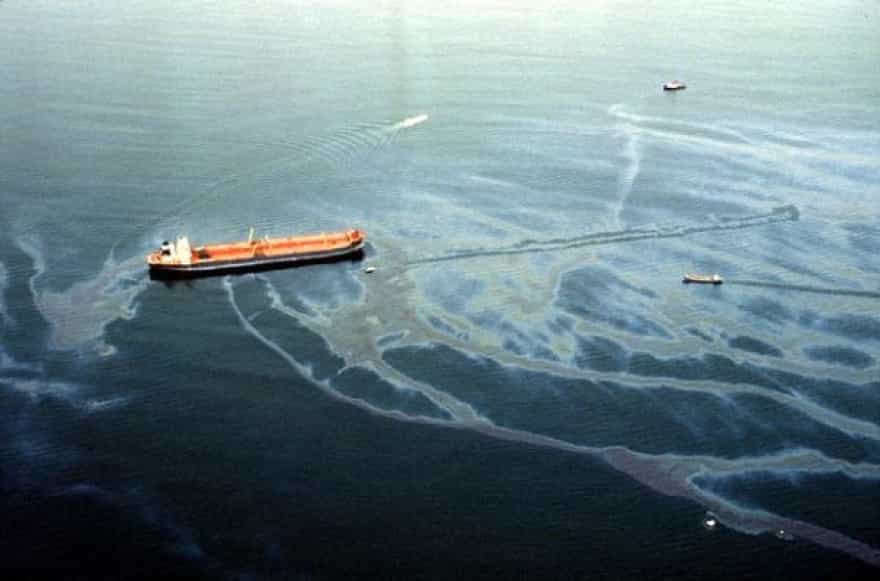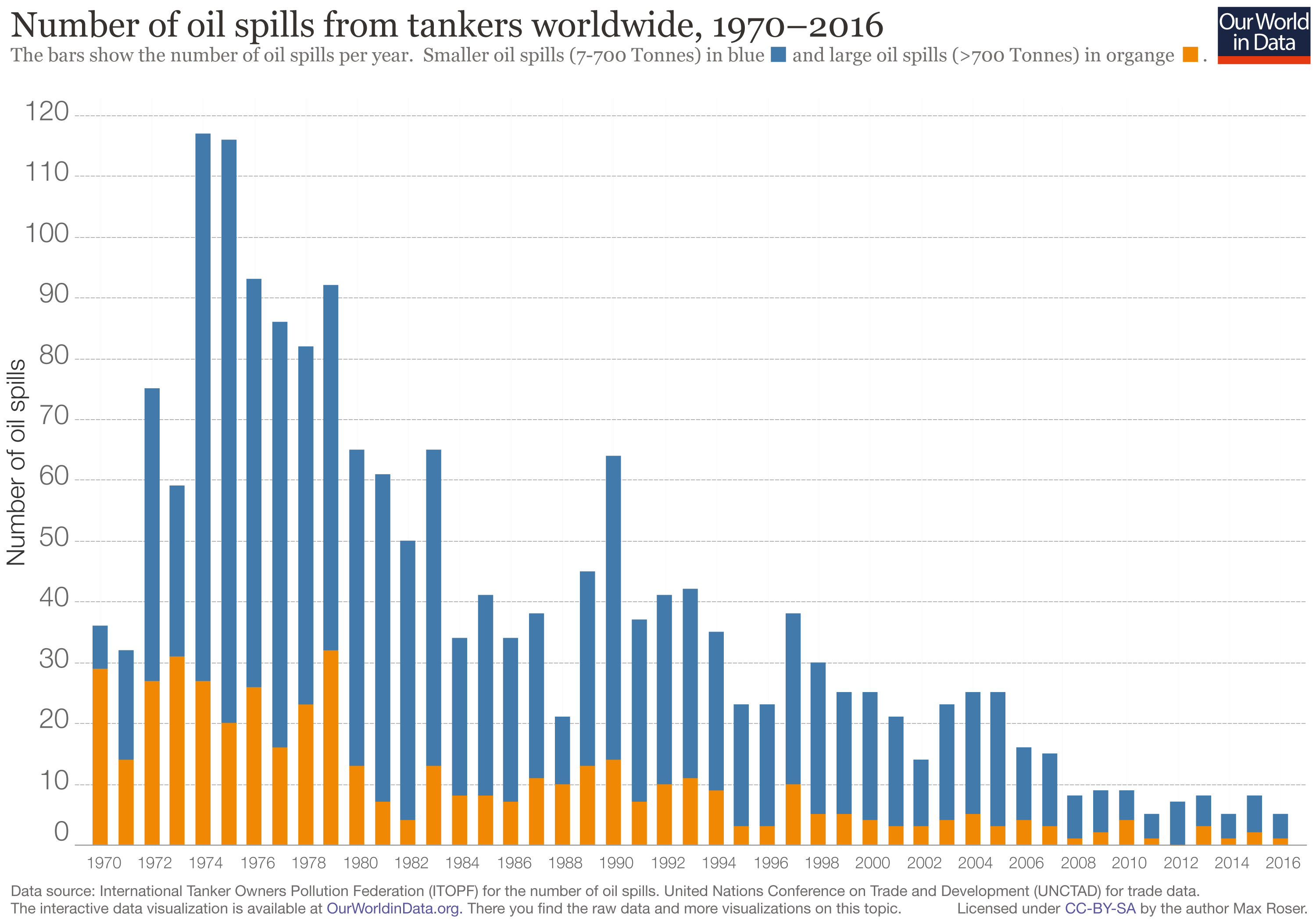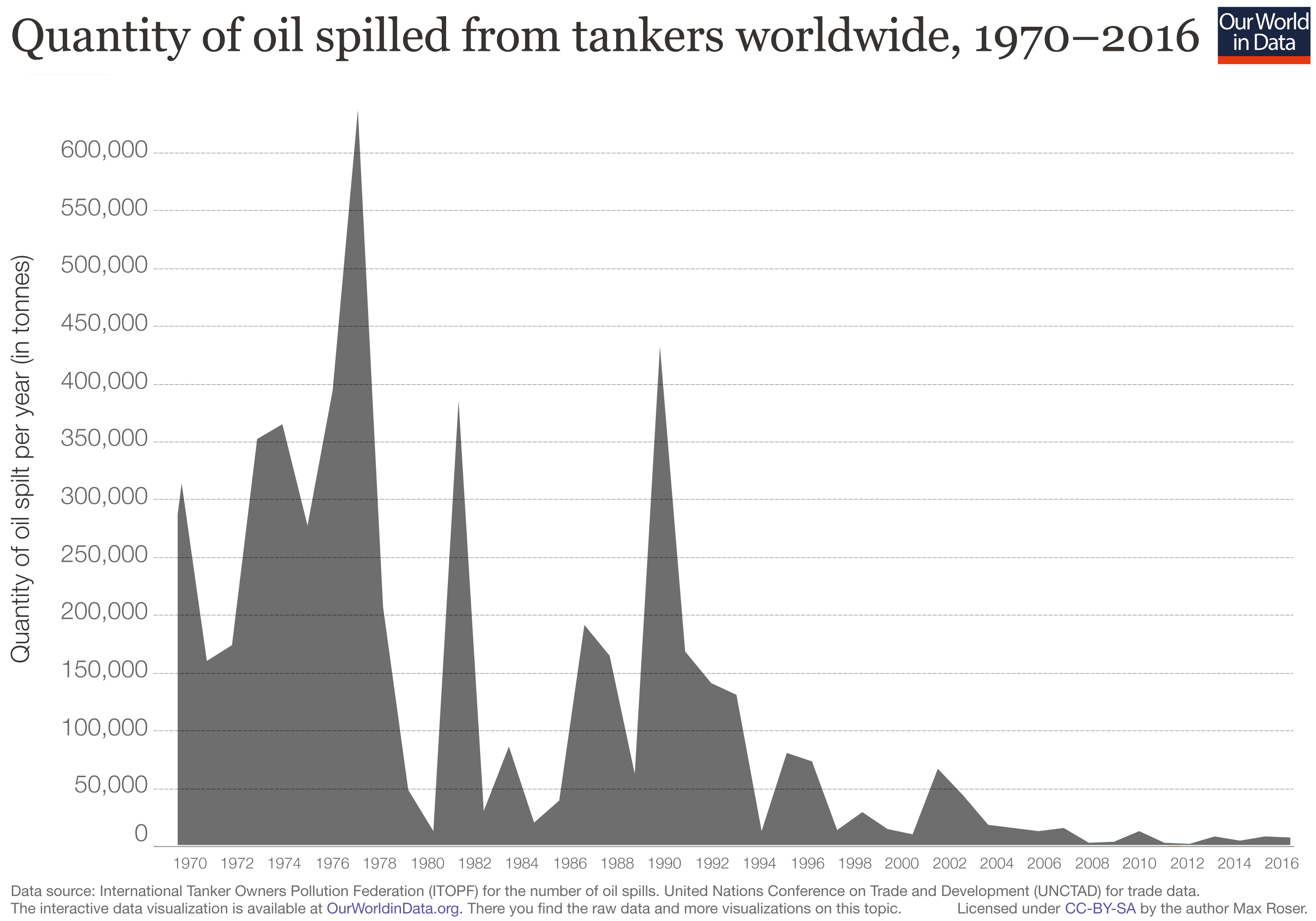
🛢 Drastic reduction in oil spills
Amoco Cadiz, Exxon Valdez, and Deepwater Horizon. Many people remember the great oil disasters, but fewer know that both the number and amount of oil spills have decreased sharply in the world.
Share this story!
Oil spills occur in many different ways and can have more or less effect on the environment. In the case of the large ones, it's either an oil source or oil platform that is leaking, or it is a ship with oil in the tanks that, for some reason, leaks or sinks.
Small oil spills are common, and they happen in many different ways. Many thousands of them occur each year. These small oil spills can, for example, happen while refueling a ship. While small, they can still cause damage, especially if they happen in sensitive environments, like beaches, wetlands, and mangroves.
However, it is large oil spills that cause major disasters. Pipelines break, big oil tanker ships sink, and drilling operations go wrong. All these events have massive consequences on ecosystems and economies. The effects can sometimes be felt for decades following a large oil spill.
Oil spills also happen when ships intentionally empty their tanks after they have been cleaned. This is, of course, illegal. Whatever the reason, this means that oil spreads into the sea and washes up on beaches, which causes great suffering for both animals and humans.
Three famous examples of major oil spills
There have been many serious oil disasters in history.
Amoco Cadiz was a supertanker transporting oil for Shell Oil that ran aground in March 1978 and split in three. This resulted in the largest oil spill of its kind in history to that date, with 219,767 tons of light crude oil being spilled into the sea.
The oil tanker Exxon Valdez struck Prince William Sound's Bligh Reef in March 1989 and caused what is considered the worst oil spill worldwide in terms of damage to the environment. 37,000 tonnes of crude oil spilled into the Alaskan waters.

Last but not least, the Deepwater Horizon oil spill: considered the largest marine oil spill in the history of the petroleum industry and regarded as one of the largest environmental disasters in American history. The total discharge is estimated at 780,000 m3.
All three made huge headlines in the media.
But did you know that in the last 45 years, the period for which there is data, oil emissions from tankers have decreased significantly, according to statistics from Our World in Data?
Oil spills reduction over time
Data from the International Tanker Owners Pollution Federation (ITOPF) covers over four decades, and during this time period, the incidence of large oil spills from tankers has decreased very sharply.
During the 1970s, there were 24.5 large, i.e., over 700 tonnes, oil spills per year. The corresponding figure for the 2010s is 1.7 oil spills per year.

Both large oil spills and medium-sized oil spills, 7-700 tonnes, are decreasing. This had taken place during a period when global trade in petroleum and gas products increased. Included in the trade statistics are trade in LNG, LPG, naphtha, petrol, aviation fuel, kerosene, light oil, heavy fuel oil, and others, according to the source UNCTAD.

The amount of oil released has also decreased very sharply. ITOPF estimated that between 1970 and 2016, approximately 5.73 million tonnes of oil were lost due to tank incidents.
Dramatic reduction in oil spills
Since occasional major incidents can be responsible for a large proportion of all oil spilled in a given year, such as Exxon Valdez, it is advisable to look at trends or averages for decades.
During these 43 years, the annual amount of oil spilled decreased enormously. During the 2000s, the amount of oil spilled was less than in several individual years in previous decades. In 2012, the lowest oil spill to date took place: 1,000 tonnes.
By becoming a premium supporter, you help in the creation and sharing of fact-based optimistic news all over the world.


